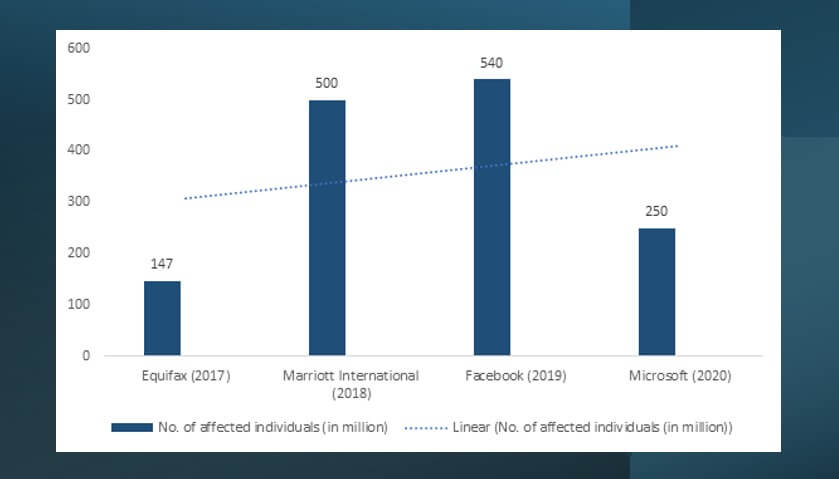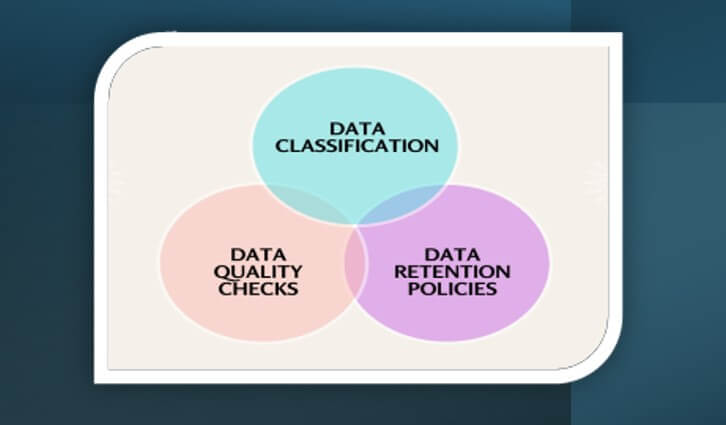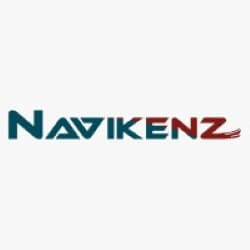
As a data manager, you are perhaps aware of the crucial role that data plays in the success of your organization. Making sure that your data is accurate, relevant, and secure is a fundamental part of data management. To achieve this, data governance provides a framework for overseeing the data lifecycle, from its creation to its archiving. With data governance, you can maintain the quality of your data and ensure that it aligns with your organizational objectives.
Unleashing the Power of Your Data: Why Data Governance Matters More Than Ever in Today's Era:
Data governance is the overall management of the availability, usability, integrity, and security of the data used in an organization. The process of data governance involves the formation of policies and procedures to ensure the safety of data throughout its lifecycle, from its creation to its deletion and archiving. It helps the organization to keep their data accurate, reliable, and secure by helping them to minimize the risk of data breaches, data loss, or data corruption, which can have severe consequences for the organization.
The rise in data breach cases across the world has driven the demand for advanced technology to manage data more safely and in an efficient way. The graph below gives some statistical data on the number of data breach cases in the last few years.
Data breach cases:

In today's era, data is a critical asset that organizations rely on to make informed decisions, gain insights into their operations, and drive business growth. However, as the volume, variety, and velocity of data continue to grow, the need for effective data governance has become more important than ever before. It is crucial in today’s time as it enables organizations to manage their data effectively, minimize risks, comply with regulations, and drive business growth through efficient and effective data management.
Revolutionizing Data Governance: How AI is Transforming the Way We Manage Data
The traditional method of data governance was a manual and time-consuming process that involved creating policies and procedures to ensure the safety of the data through its lifecycle. However, with the rise of artificial intelligence, organizations can automate these processes thereby saving time and resources while enhancing the quality and accuracy of their data.
How can AI help organizations automate their data governance process?
In today's data-driven world, organizations are constantly seeking ways to maximize their productivity and extract the greatest value from their data. Artificial intelligence (AI) is emerging as a valuable resource that can help achieve these goals. It has the potential to transform the way organizations manage their data, offering unprecedented capabilities for automating key tasks and unlocking valuable insights. In this context, there are three key areas where AI can have a significant impact on effective data management in an organization.

- Data classification:
-
- AI can be used to classify data based on its sensitivity or criticality, making it easier for organizations to identify which data needs to be protected or monitored more closely.
- Machine learning algorithms can be trained to analyse data and assign appropriate classification tags, which can save time and resources.
- Data quality checks:
-
- AI can be used to automatically detect errors or inconsistencies in data, such as missing values or incorrect formatting.
-
- Machine learning algorithms can be trained to flag data that does not meet certain quality standards, which can help data governance teams to identify and correct issues more quickly.
- Data retention policies:
-
- AI can be used to automate data retention policies, ensuring that data is retained or deleted according to the organization's policies and legal requirements.
- Machine learning algorithms can be trained to monitor data usage and retention, flagging data that needs to be retained or deleted and taking appropriate action.
Staying Ahead of the Game: How AI is Helping Organizations Ensure Compliance with GDPR and CCPA Regulations
With the growing amount of personal data being generated and collected by organizations, complying with data protection regulations such as the General Data Protection Regulation (GDPR) and California Consumer Privacy Act (CCPA) has become more crucial than ever. However, manual compliance efforts are time-consuming, very complex, and prone to error. This is where AI can come into play, offering a range of tools and capabilities to help organizations stay ahead of the game and ensure compliance with these important regulations.
- Data mapping and discovery: Artificial intelligence can be used to automatically identify and map data flows within a company's systems, making it simpler to determine which data is covered by specific laws like the GDPR or CCPA. This can assist enterprises in managing and safeguarding customer information more effectively while also ensuring that they are following all relevant laws.
- Automated risk assessments: Potential compliance risks can be identified by AI, and it can recommend appropriate mitigation strategies which can help the organization consistently address compliance risks and avoid costly fines or penalties.
- Automated data subject requests: Artificial intelligence can automatically handle data subject requests, such as requests for access or deletion of personal data. Through this, businesses can more efficiently and effectively respond to these requests, while ensuring compliance with relevant regulations.
Here are some examples of companies using AI to ensure compliance with GDPR and CCPA regulations:
- Microsoft: Microsoft has implemented an AI-powered tool called Compliance Manager that helps organizations manage their compliance with various regulations, including GDPR and CCPA. The tool uses machine learning algorithms to automate risk assessments, monitor compliance activities, and provide guidance on how to address compliance gaps.
- Deloitte: Deloitte has developed an AI-powered solution called ConvergeHEALTH Safety that helps healthcare organizations ensure compliance with GDPR and other regulations related to patient data privacy. The solution uses natural language processing to analyse regulatory documents and provide recommendations on how to comply with them.
- Salesforce: Salesforce has implemented an AI-powered tool called Einstein Discovery that helps organizations identify compliance risks related to GDPR and other regulations. The tool uses machine learning algorithms to analyze data and identify patterns and trends that could indicate potential compliance issues.
Data governance is an essential aspect of modern business operations, and with the help of AI tools and technologies, businesses can take their data management practices to the next level. By implementing effective data governance policies and procedures, organizations can ensure the integrity, accuracy, and security of their data, minimize the risk of data breaches, and drive business growth through effective data management. By staying up to date with the latest technologies and trends, businesses can continue to unleash the power of their data and stay ahead of the competition.
